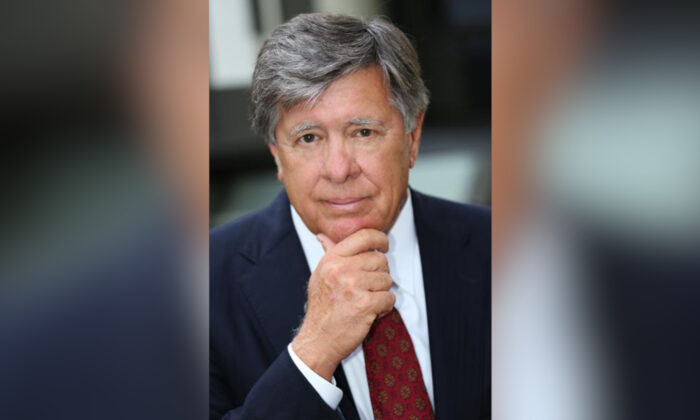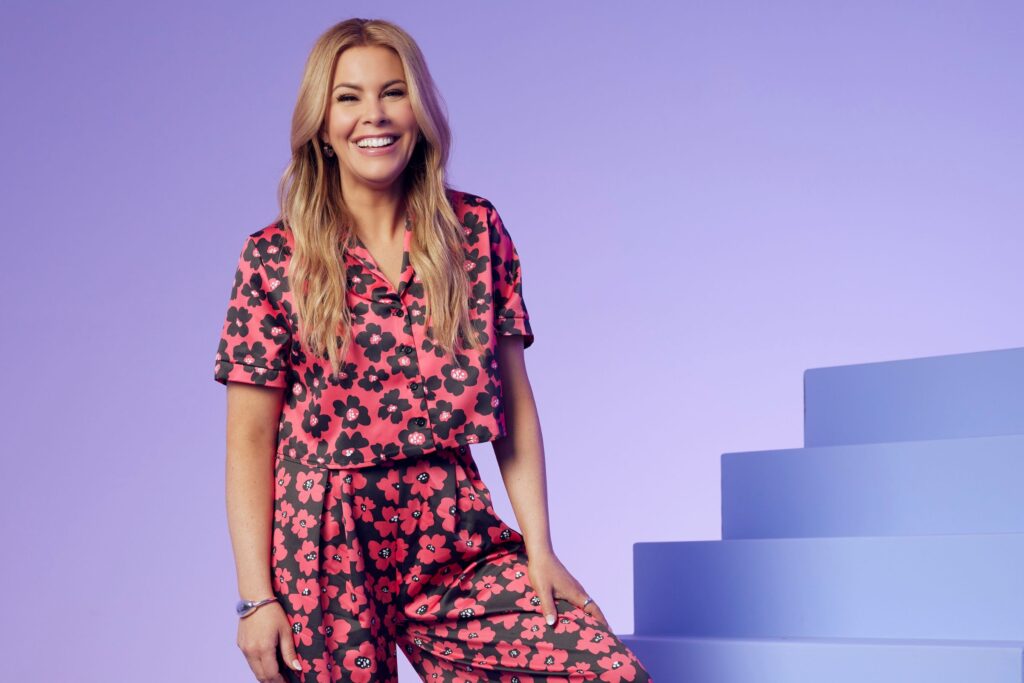Chuck Masek is known as the man who spearheaded the billion-dollar industry of reprocessing single-use medical devices, but when he started out in the medical tech field, in a tiny lab where he spent day in and day out doing things like looking at stool samples under a microscope, he had no inkling life would go in that direction. Being called a “visionary” never sat well with him.
Reprocessing is little known to industry outsiders—essentially it means cleaning and sterilizing a medical device, like an electric scalpel, making it safe for medical use again instead of sending it to the landfill.
“The company was started because I needed a job, and I needed to save the house, that’s all it was,” said Masek.
The story of David is the story of the little boy who defeated a giant with only his stones, his slingshot, and God on his side. That “protection by Providence” made David the symbol of Florence, a little republic that faced countless battles, giants compared to its own history and size.
Masek’s story is definitely a David and Goliath story. Throughout it all, he saw the hand of providence, he said. He also had science on his side.
“I mean, we should have never survived, we should have been trampled by the big companies, we’re talking multibillion-dollar corporations. We were playing in their sandbox and they did not like it, and they did everything they could” to drive newcomers like Masek out of the field. He recounts the endless battles in his memoir “At War With the Big Dogs.” But they made it through.
“I look back in amazement,” he said. “In the process of building Vanguard, certain things had to happen that I didn’t know had to happen, and if it didn’t happen, we’d be out of business. So I know I didn’t do it, I was privileged to lead … the men and women who fought this battle, and it was a bloody battle,” Masek said.

Timing
The first part of Masek’s career is filled with betrayal; as a medical device salesman, he was moving all over the country—19 moves in the first 13 years of his marriage with his wife Marge, with each of his four children born in a different state. He had money, ideas, and business stolen from him.
“I lost everything in a bad business deal in Haiti,” he said. “I was 40 years old, I was a quarter of a million dollars in debt, I had four children age 7 to 13, and we were about to lose the house. It was a hard time. And a lot of times, these things will destroy a marriage, but my Marge, we circled the wagons, and she said, ‘Chuck, this wasn’t your fault.'”
“My wife is from North Dakota, she’s a farmer’s daughter, and she is made of strong stuff. She’s actually the most amazing person in my life, there is not a person in the world that I trust more than her,” he said.
He and Marge are often asked what the secret to their strong marriage is, and they tell people, “Love God first.” They decided that early on, when they both became believers in college.
“If we love God first, then we can love each other. Because if we love each other and we don’t love God, there’s no way the marriage will survive,” he said. Everything God tells you to do is for a benefit, he said, and he may have a lot of rules, but if you actually look at the rules, they’re all good things.
So at his lowest point, but with Marge on his side, Masek only knew that he wasn’t going to let betrayal define his story, and he jumped back into the fray.
The company Masek had lost had done reprocessing of towels, so he already knew about reprocessing, but it was a chance encounter with a nurse and a package on her desk that launched Masek’s next business idea.
It was a suture pack that a small independent company had reprocessed, and Masek was confused because when he sold medical devices, the big manufacturers would reprocess them for free if only the outer layer was opened. Suture packages have an outer portion that is often opened in anticipation of surgery, and an inner, sterile seal that is left intact if not used, Masek said. Then the nurse told him the big manufacturers weren’t doing it anymore, and it likely had something to do with the big scare around the AIDS epidemic. It could have been a liability issue.
Unbeknownst to Masek at the time, two big events had led to where he was now. The Medicare Act of 1965 had made it so that Medicare would reimburse based on the cost of surgery, and nearly overnight, manufacturers started labeling devices “single use” even if they were the same exact glass or carbon fiber device previously considered a reusable device, and it was all up for reimbursement. But then in the 1980s, reimbursement costs were fixed depending on the type of diagnosis, which had hospitals scrambling to cut down costs. And medical devices were now the second-highest cost of surgery.
He started reprocessing devices for hospitals at half the cost of whatever they originally paid for the device.
Masek had two main obstacles now, the “yuck” factor, and the big manufacturers, and he used science to refute each one. The former would be far easier than the latter. First he showed clients that many of these devices were originally meant to be reprocessed and reused, not thrown into landfills after a single use. And the longer he was in business the more data he had, so Masek was able to show that reprocessed devices were far less likely to cause infection than even new devices, because every reprocessed device is tested, and new devices aren’t.
A ‘Win-Win-Win’
Early on, a nurse asked Masek a very prescient question: Aren’t you worried about the Big Dogs getting into the business and squashing you? But that question raised a second one: Why would these big companies reprocess devices for free or for half cost, when they could insist on selling you a new one at full price?
The operation began as a tiny one. Vanguard Medical Concepts was just Masek, Doug Stante rigging up new machines to clean and sterilize devices, and 19-year-old Steve Bernardo writing software to track their data.
But they believed in it and it grew, because they saw it as a win-win-win. Hospitals could cut costs as well as divert thousands of pounds of biomedical waste from the landfills, patients benefited from the cost savings and safe devices, and Vanguard had created hundreds of jobs.
It was when they started getting big that the original device manufacturers began to take notice. First they tried to frame reprocessing as distasteful—but that only gave Vanguard the opportunity to educate clients on how they reprocessed devices and why it was sterile. Then they accused Vanguard of not being FDA-approved, and the FDA said it was because they wouldn’t know where to start in regulating this new industry. Vanguard all but volunteered to become the guinea pigs for regulation, letting FDA regulators poke and prod and ask endless questions in the process of not only proving that reprocessing was safe and beneficial, but could be regulated.
“The manufacturers did many things over the years that were designed to hurt us, but it actually helped us,” he said. But only because they stuck to the science and showed people relentlessly that the science was true.
Masek had successes, but the problem was that the battles seemed endless, and it was shocking the lengths his opponents would go to.
“I was always going for the prize, but when I got there, it wasn’t what I thought it was,” Masek said.
Perspective
You don’t endure countless battles with everything stacked against you—money, power, influence—unless you know you’re doing something right. Masek said his guiding philosophy that God was in charge, not him, led his story.
“I tell people all the time, we don’t own anything, to own something you have to create it and there is only one Creator. We actually manage stuff. Someday I’ll die, and God’ll give it to somebody else to manage, and I’ll be happy about that,” Masek said.
Masek tells his children the most important word is “perspective.”
“All through life, I tell my children, the world never gets it right, it goes the wrong way,” Masek said. “Raising my children, I tell them things are never as good as they seem and they’re never as bad as they seem. Keep your perspective. They’re just things.”
“God is always in control. No matter how bad you think things are, He is still God and he still has control,” Masek said.
Masek said the first reason he went back to revisit all the battles Vanguard weathered in order to write the book was to honor all the good men and women who were a part of it.
“It’s for their children or grandchildren, to tell them what grandma or grandpa did,” he said. “The second reason is for any men and women who find themselves in a battle against all odds, that the fight does not always go to the big dogs.”















